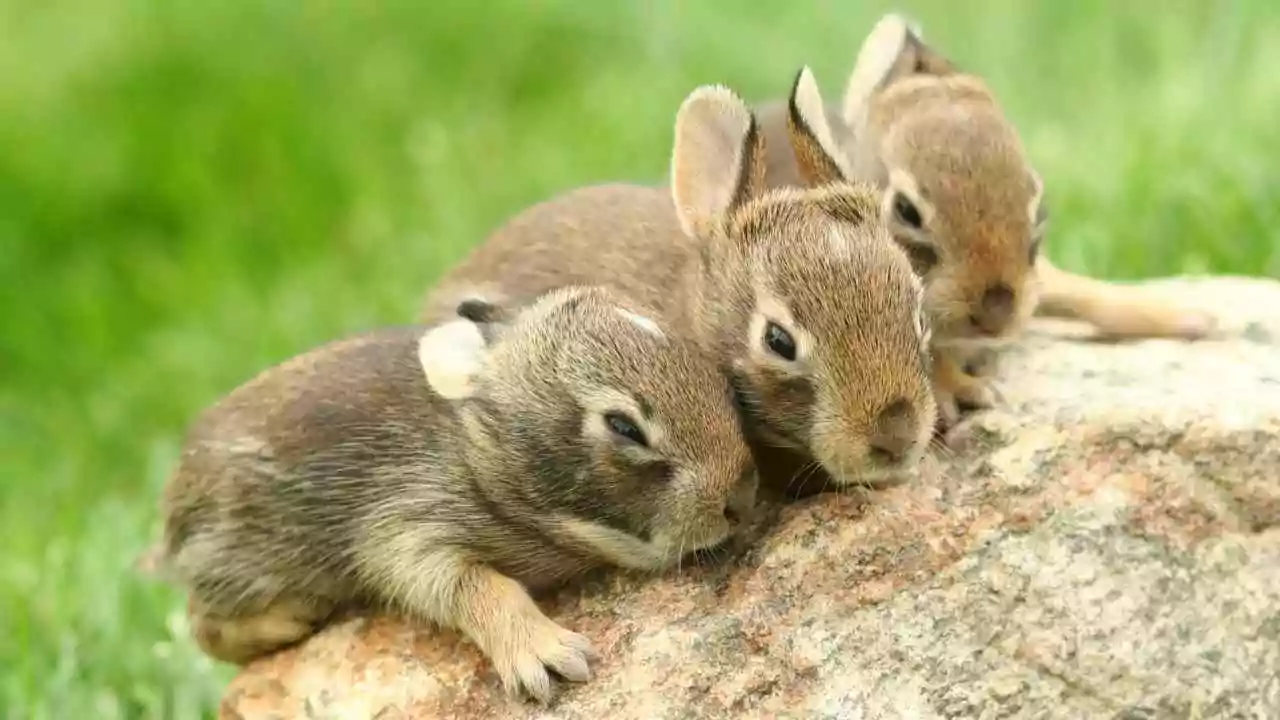It’s a common question among rabbit owners, “How old is my baby bunny?” Knowing the age of your baby bunny can be essential to providing proper care and treatment. So if you’re wondering about the age of your baby bunny, read on to discover the age of baby bunnies and all you need to know about caring for them.
What Age do Baby Bunnies Leave the Nest?
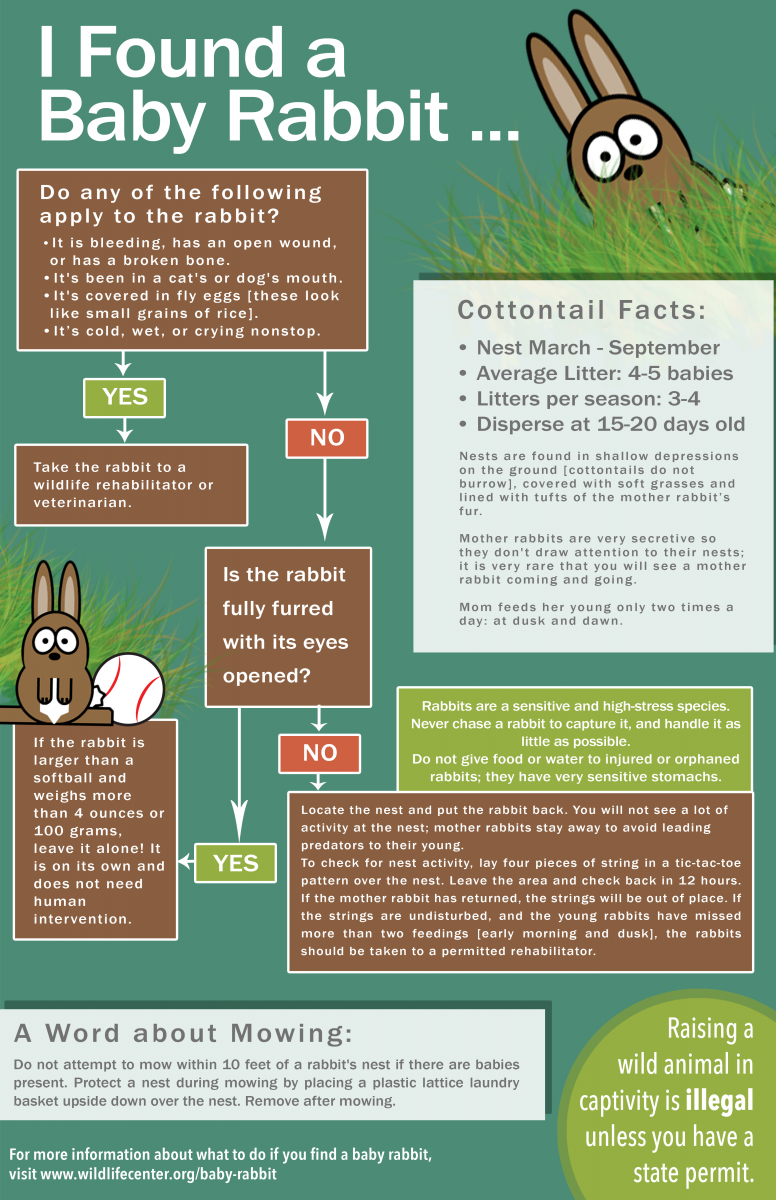
Baby bunnies leave the nest at 6-8 weeks of age. They begin to explore their environment and forage for food, and at this stage, they are fully weaned and can be considered independent.
- 2 weeks old: Baby bunnies open their eyes and begin to explore the nest.
- 4 weeks old: Baby bunnies leave the nest and start to explore the area around it.
- 6-8 weeks old: Baby bunnies are fully weaned and become independent.
At this age, they should be moved to a separate area or cage since they will no longer be able to rely on their mother for food or protection. If you plan on keeping the baby bunnies, it’s best to provide them with a warm and secure environment, such as a well-ventilated enclosure, and a diet of hay, fresh vegetables, and rabbit pellets.
Once the baby bunnies reach 8 weeks of age, they can be spayed or neutered to prevent any unwanted litters. This is an important step for any pet rabbit, as it helps to reduce the risk of health problems and can also help to keep them calmer and less territorial.
In conclusion, baby bunnies typically leave the nest at 6-8 weeks of age. At this stage, they are fully weaned and ready to explore their environment. It’s important to provide them with a warm and secure environment and a balanced diet, and to make sure they are spayed or neutered to prevent any unwanted litters.
How to Tell How Old a Baby Bunny is?
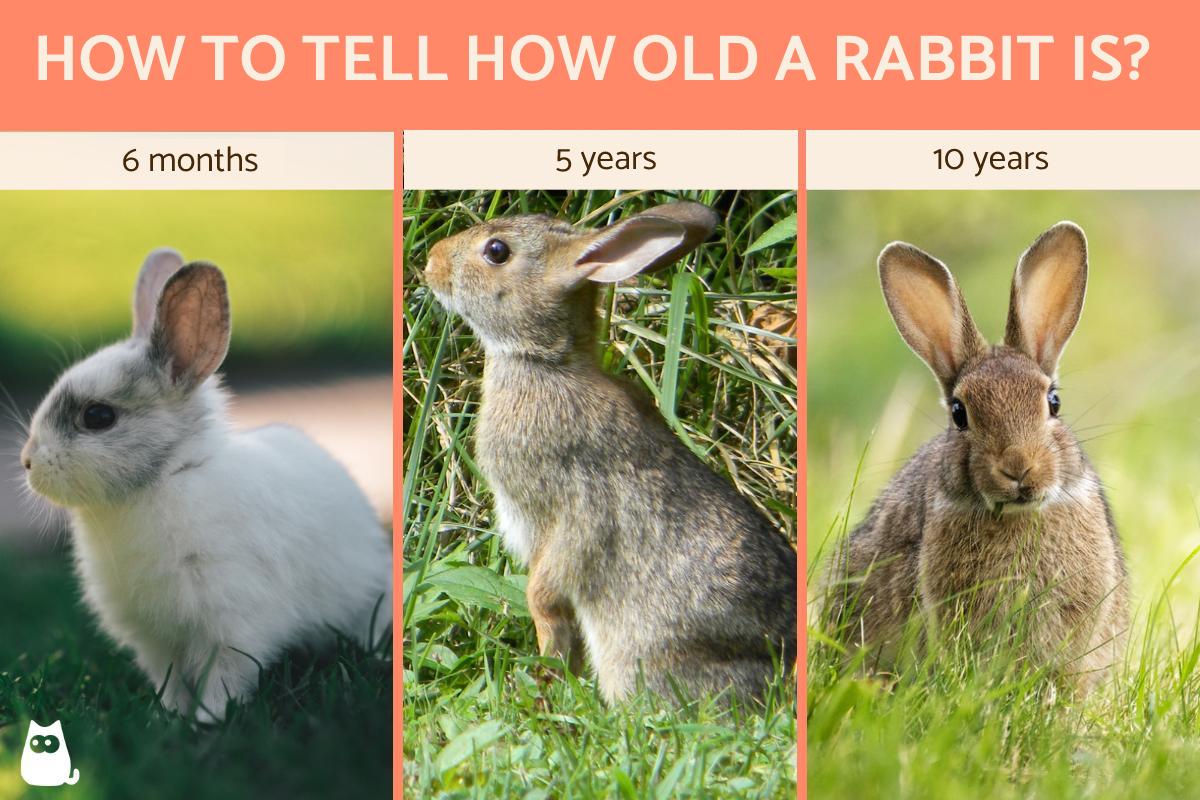
Physical Characteristics
A baby bunny’s physical characteristics can give clues about their age. A newborn rabbit is usually covered with fur and their eyes are usually closed. As the rabbit grows, its eyes will open and it will start to hop around. A baby bunny’s fur will become thicker and shinier as it ages.
Weight
The weight of a baby bunny can also indicate its age. A newborn rabbit typically weighs between 2–3 ounces. As the baby bunny gets older, it will gain more weight. An 8-week-old rabbit should weigh about 1 pound. If a baby rabbit weighs significantly less than this, it is likely very young. To get a more accurate estimation of a baby rabbit’s age, it’s important to weigh the bunny regularly.
How Fast do Baby Bunnies Grow?
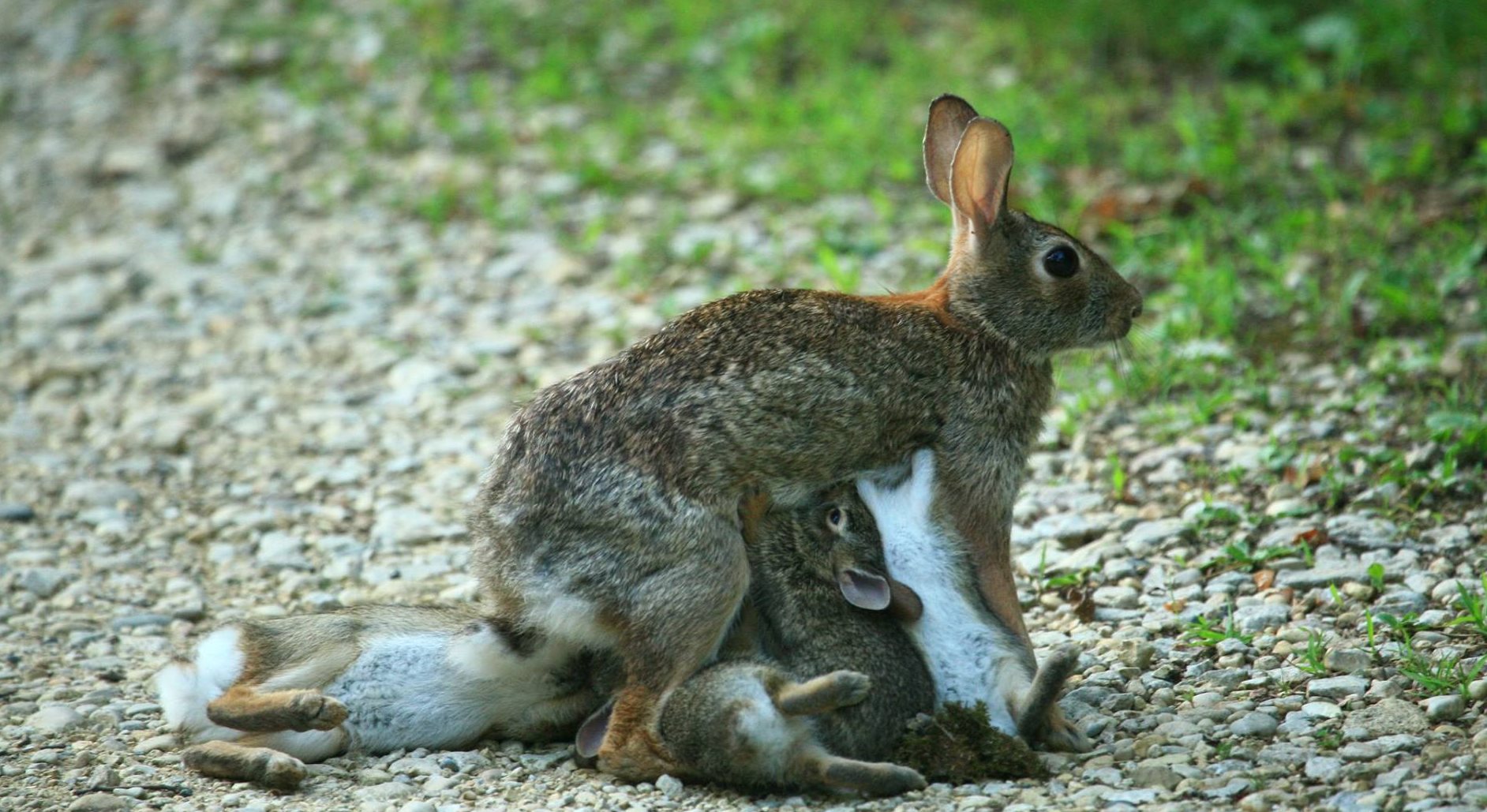
Baby bunnies grow at an incredibly rapid rate. In the first few weeks of life, they grow up to four times their birth weight. After that, they can gain up to two-thirds of their birth weight in a single week. By the time they reach adulthood, they are usually five to six times the size of their newborn selves.
Growth Rate
The growth rate of baby bunnies varies depending on breed, size, and diet. Generally, smaller breeds tend to grow faster than larger breeds. Also, a healthy diet that is high in protein and fiber can help encourage faster growth.
When Do Baby Rabbits Grow Fur?
Baby rabbits typically grow their first coat of fur around three weeks after birth. This fur is usually very soft and fluffy and may be a different color than the adult rabbit’s fur. As the baby rabbit grows, the fur will become more coarse and will eventually match the color of the adult rabbit.
Knowing how fast baby bunnies grow can help you determine the age of baby bunnies. If you are looking to adopt a baby bunny, it’s important to know how to tell how old baby bunnies are so you can ensure they are being cared for properly.
Health Considerations for Baby Bunnies
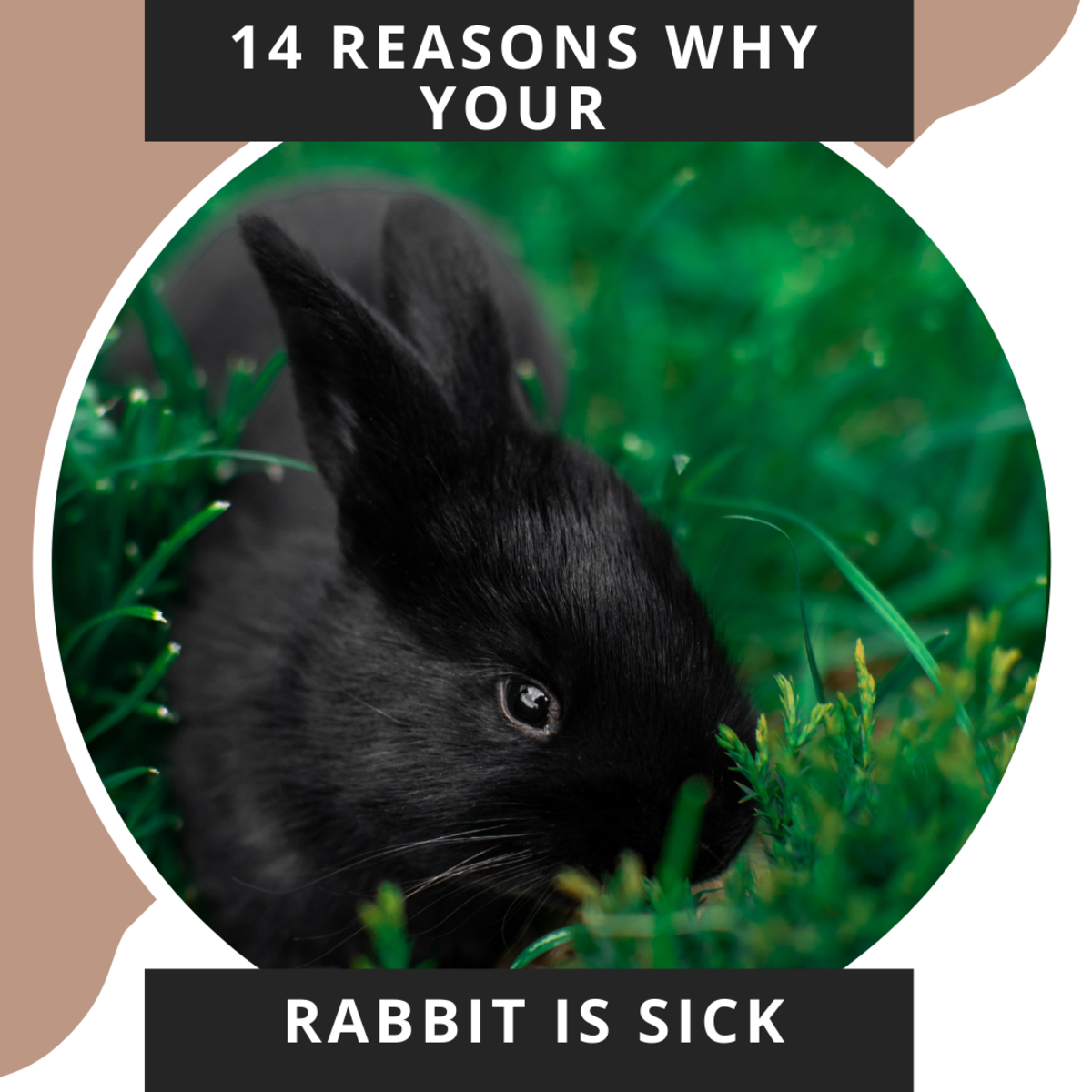
Baby bunnies require special attention when it comes to their health and well-being. To ensure your baby bunny remains healthy, it is important to provide proper nutrition and veterinary care.
Nutrition
Baby bunnies should be fed a high-quality diet appropriate for their age. Younger bunnies require a diet that is high in fat, protein, and calcium. A diet of hay, fresh vegetables, and a small amount of pellets should be provided.
Veterinary Care
Regular veterinary visits are essential for monitoring the health of your baby bunny. In addition to regular check-ups, baby bunnies should be vaccinated and dewormed as needed.
Signs of Illness
It is important to monitor your baby bunny for any signs of illness. Signs of illness in baby bunnies can include lethargy, loss of appetite, and runny eyes. If you suspect your baby bunny is ill, contact your veterinarian immediately.
How to Tell How Old Baby Rabbits Are
In order to determine the age of your baby bunny, you will need to examine its teeth. Younger rabbits have small, sharp teeth, while older rabbits have larger, flatter teeth. You can also check for signs of fur molt, which usually starts at around 10-12 weeks of age.
| Age | Teeth | Fur Molt |
|---|---|---|
| Younger Bunnies | Small, sharp teeth | No molt |
| Older Bunnies | Larger, flatter teeth | Molt present |
It is important to take the time to monitor your baby bunny’s health and well-being to ensure it remains healthy and happy.
Nutrition Requirements for Baby Rabbits
Baby bunnies have very specific nutrition requirements, which should be met in order to ensure their healthy development. It is important to note that the optimal diet for baby bunnies will depend on their age – newborns need a different diet than bunnies of 6-8 weeks, who in turn need different nutrients than bunnies of 10-12 weeks.
Newborns (up to 2 weeks) should be fed their mother’s milk. If this is not possible, then a newborn formula should be used. After 2 weeks, bunnies can begin to be weaned, although the mother’s milk should still be supplemented with a commercial rabbit feed, hay, and fresh vegetables. Bunnies of 6-8 weeks should be fed high-quality commercial rabbit feed, hay, and fresh vegetables. Bunnies of 10-12 weeks should be fed a combination of pellets, hay, fresh vegetables, and a small amount of fruit. It is important to ensure that bunnies of all ages have access to fresh, clean water.
Table 1. Typical Nutrition Requirements for Baby Bunnies by Age:
| Age | Food |
|---|---|
| Newborns (up to 2 weeks) | Mother’s milk or newborn formula |
| 2 weeks – 6 weeks | Mother’s milk, commercial rabbit feed, hay, fresh vegetables |
| 6 – 8 weeks | High-quality commercial rabbit feed, hay, fresh vegetables |
| 10 – 12 weeks | Pellets, hay, fresh vegetables, small amount of fruit |
It is important to remember that the nutritional needs of baby bunnies change rapidly as they grow. For this reason, it is important to consult a veterinarian to ensure that your baby bunnies are receiving the proper nutrition for their age.
Frequently Asked Questions
What are the Signs of a Healthy Baby Bunny?
- Clear eyes: Healthy baby bunnies will have bright, clear eyes.
- Alertness: Healthy baby bunnies should be alert and active.
- Clean fur: The fur should be clean and not matted or clumped together.
- Soft ears: The ears should be soft to the touch and not hard or crusty.
- Clean nose: The nose should be clean and not runny or crusty.
- Healthy appetite: Healthy baby bunnies should have a hearty appetite and should not be picky eaters.
- Good posture: The baby bunny should have good posture and not be lethargic.
- No discharge: The eyes, nose and ears should have no discharge.
What is the Best Age to Introduce a Baby Bunny to a New Home?
The best age to introduce a baby bunny to a new home is at 8-10 weeks old. Before this age, bunnies are still developing and need to be with their mother for nutrition and socialization. After this age, bunnies are better able to handle the stress of a new home and will be more likely to bond with their new owners.
How Often Should a Baby Bunny Be Fed?
- 0-2 weeks: Eat every 2-3 hours
- 2-4 weeks: Eat every 3-4 hours
- 4-6 weeks: Eat every 4-5 hours
- 6-8 weeks: Eat every 5-6 hours
- 8-10 weeks: Eat every 6-7 hours
- 10+ weeks: Eat every 8-12 hours
Baby bunnies should be fed according to their age. During their first two weeks of life, baby bunnies should be fed every 2-3 hours. As they grow, the time intervals between feedings should increase in a gradual manner. During the 2-4 week period, bunnies should be fed every 3-4 hours. Between weeks 4-6, feedings can occur every 4-5 hours. For the 6-8 week period, bunnies should be fed every 5-6 hours. Bunnies aged 8-10 weeks should be fed every 6-7 hours. Finally, once they reach 10+ weeks, bunnies can be fed every 8-12 hours.
How long does it take for a baby bunny to reach maturity?
On average, baby bunnies reach maturity at 6 months of age. This is when a bunny is considered an adult and can reproduce.
- At 3-4 weeks of age, the baby bunny will open its eyes and begin to explore its surroundings.
- At 6-7 weeks of age, the baby bunny is ready to be weaned from its mother.
- At 8-9 weeks of age, the baby bunny will start to display behavior associated with adulthood.
- At 12-13 weeks of age, the baby bunny is ready to be spayed or neutered.
- At 6 months of age, the baby bunny is considered an adult and can reproduce.
It is important to keep in mind that the age at which a baby bunny reaches maturity can vary depending on the breed and size of the bunny. Larger breeds may take longer to reach maturity than smaller breeds. It is always best to consult a veterinarian to determine when a baby bunny is ready to be spayed or neutered.
Are There Any Special Considerations When Caring for a Baby Bunny?
Caring for a baby bunny requires special attention. Ensure their diet consists of hay, fresh vegetables, and a small amount of pellets. Offer them plenty of water and change the bottle daily. Create a safe, warm and comfortable living space with bedding and plenty of hiding places. Handling the baby bunny regularly is important for socialization, but ensure you do it gently and appropriately. Monitor them for any signs of illness and contact your vet if necessary. Finally, ensure you keep their living space clean and regularly groom them.
Conclusion
Rabbits are wonderful and unique animals that can bring joy and companionship to any home. Knowing when a baby bunny is old enough to be handled and when it’s ready to be separated from its mother is an important part of raising a healthy, happy rabbit. With the information provided in this article, you should now be better equipped to determine the age of your baby bunny and care for it appropriately.
